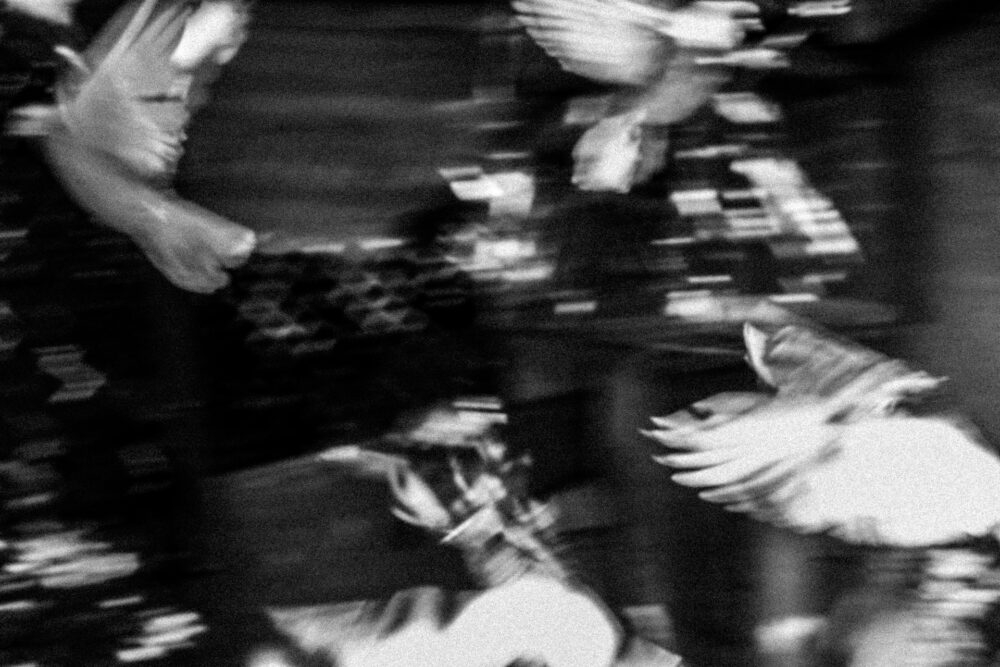
In both Armenia and Azerbaijan, soldiers continue to suffer with post-traumatic stress left by the Second Nagorno Karabakh War in 2020. Although both governments created programs to support soldiers, some have found their own ways to cope. For Sarvin Javadzade, 26, and Hayk Aleksanyan, 21, pigeon-keeping provides worlds of comfort. The long tradition of bird-keeping in the Caucasus is now not only a pastime but a way to escape flashbacks of the war.
Azerbaijan: Pigeons-Keeping now helps to escape flashbacks of the war
It is hard for him to find the same comfort he finds in the flapping of the pigeons’ wings. From the day Sarvin Javadzade tried to recover his forgotten memories to the day he tries to control his nerves, with them, he assuages the stress he has experienced so far.
Sarvan suffers from post-traumatic stress disorder, triggered by the events of the war. He says when he gets anxious, he loses his consciousness and experiences memory blackouts. The pigeons in his yard have become the protagonists of his life.
Raising birds is a famous pastime in Azerbaijan. Sarvin Javadzade, 26, has been a pigeon keeper since his childhood, and his entire family has been engaged in bird watching.
When Sarvin returned home he did not recognize his family, and did not even recognize his name. He said it took 14 months to restore his memory. During this time, he tried to remember his past by looking at pictures. Before the war, his family remembers Sarvin as cheerful, witty, and smiling; now he has been completely changed.
“I was wondering why I came to this house. Some nights I wanted to run away from my home. I thought, what am I doing in this house?! I thought they wanted to keep me as a prisoner. As the treatments continued, I started to remember that I was with my family.”
Sarvin was called to military service in 2014, when he turned 18 When he returned home after completing his service his elder brother was working in the military, so Sarvin also decided to continue along this path as it was a job that would give him stability. He applied in the beginning of 2020.
“Until the war, I served as a sergeant in the border troops in Zagatala. I was a group commander. On the first day of the war, I participated in the battles in the Dashkasan-Kalbajar direction. On September 28, I was involved in the battles in the direction of Fuzuli-Jabrail.”
Sarvin gets nervous when describing what happened during the war. He says that on October 14th, a bombshell fell near him while he was evacuating wounded soldiers in one of the taken posts. Sarvin cannot remember how he was injured.
. “I was sent to the hospital with other wounded soldiers. I did not remember anything at that moment. I didn’t even know my name. My comrades – also wondered what happened to me.”
Sarvin’s treatment is still ongoing. He has already recovered his memory, but the traces of trauma caused by the bullet are not erased. According to Sarvin, he cannot talk with friends for more than five to ten minutes. Tension and sounds intrude his mind and make him nervous and unconscious. He experiences the same tension when he tries to work for more than five minutes. Sarvin’s doctor advised him to avoid this tension. Sarvin’s best assistants keeping him away from stress are his pigeons. He considers them to be indispensable participants of his rehabilitation period. He wakes up every morning and feeds them. sometimes he watches them for hours, sometimes all day.
“Sometimes I sit for hours watching them fly. I forget horrible memories while watching them. All my nerves calm down.”
Sarvin is sure that he will never go back to the military, and believes that soon he will return to his healthy pre-war life. He wishes to feel the same comfort in society that he found with his pigeons. He remembers the period he lost his memory as a dark page in his life. His family feels the past two years as twenty years. They curse the war and its causes.
Armenia: Fly pigeon, fly
After his 44 days in the Second Nagorno-Karabakh War and 28 days spent in a coma, it took Hayk Aleksanyan, 21, months to recover. The pigeons offer him a world of comfort he might not have found otherwise.
Before the war began Hayk dreamed of completing a law degree and moving to a bigger city, but everything changed when he was severely injured during the 44-day war between Armenia and Azerbaijan. He spent more than two months in the hospital; his recovery process was slow and is still ongoing.
Although he is already able to move and do things by himself, one of his hands hardly functions. His appearance has changed because of numerous surgeries and this was still something that he needed time to accept.
Since returning to his home village of Kornidzor, Hayk has realized that pigeons make him feel better. He now keeps more than 30 pigeons in a thoughtfully constructed bird home in his village, located in the Syunik province on the borderline with Azerbaijan and guarded by Azerbaijani soldiers from the three sides. In sunny Kornidzor not much is happening, besides the ongoing construction of a new road that will connect Armenia to Karabakh.
The pigeons are closest to the young man who prefers not to speak about what happened. They accompany him when he needs to escape from the constant attention of his family. The time he spends with his birds helps him to stay calm and quiet.
After surviving severe injuries Hayk does not like being photographed . Every time the camera would catch his face, his birds would cover him.
“They are beautiful.”
These were the only words he said, and he repeated them a few times while he was with the pigeons.